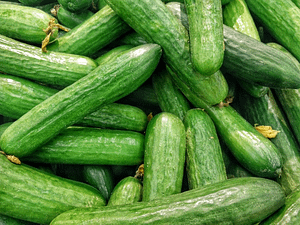
Walnut, the seed of the fruit of a tree belonging to the Juglandaceae family, is a versatile and delicious ingredient that has been enjoyed for thousands of years. With its sweet and slightly astringent taste, walnuts are not only consumed fresh but also used extensively in cooking and preparing various dishes. In addition, the oil extracted from walnut seeds adds a unique flavor to a wide range of culinary creations.
A Brief History of Walnut Cultivation
The cultivation of walnuts dates back thousands of years, with evidence suggesting that various species of walnuts were enjoyed by ancient civilizations. One of the most well-known species is the Persian walnut, also known as the English walnut (Juglans regia), which is native to Iran. This particular variety has become highly popular due to its large size and excellent flavor.
Another species, the black walnut (Juglans nigra), is native to eastern North America. Although it is not as widely cultivated as the Persian walnut, the black walnut has a distinct flavor that is highly prized by some. It is often used in baking and confectionery.
The Health Benefits of Walnuts
Walnuts are not only delicious but also packed with nutrients that offer a wide range of health benefits. Here are some of the key reasons why you should consider incorporating walnuts into your diet:
1. Rich in Omega-3 Fatty Acids
Walnuts are an excellent source of omega-3 fatty acids, which are essential for overall health. These healthy fats have been linked to a reduced risk of heart disease, improved brain function, and reduced inflammation in the body.
2. High in Antioxidants
Walnuts are rich in antioxidants, including polyphenols and vitamin E. These compounds help protect the body against oxidative damage caused by free radicals, which can contribute to chronic diseases such as cancer and heart disease.
3. Supports Brain Health
The omega-3 fatty acids found in walnuts are particularly beneficial for brain health. They have been shown to improve cognitive function, memory, and overall brain health. Including walnuts in your diet may help reduce the risk of age-related cognitive decline.
4. Promotes Heart Health
Walnuts have been extensively studied for their potential heart health benefits. Regular consumption of walnuts has been associated with a reduced risk of heart disease, lower cholesterol levels, and improved blood pressure control.
5. Aids in Weight Management
Despite being calorie-dense, walnuts can actually be beneficial for weight management. The combination of protein, fiber, and healthy fats in walnuts helps promote feelings of fullness and satisfaction, reducing the likelihood of overeating.
Using Walnuts in Cooking
Walnuts are incredibly versatile in the kitchen and can be used in a wide variety of dishes. Here are some creative ways to incorporate walnuts into your cooking:
1. Salads
Add a crunch and nutty flavor to your salads by sprinkling toasted walnuts on top. They pair well with both leafy greens and fruits, adding a delightful contrast of textures.
2. Baking
Walnuts are a classic addition to baked goods such as cookies, cakes, and bread. Whether you chop them up and mix them into the batter or use them as a topping, walnuts add a delicious nuttiness to your favorite treats.
3. Homemade Granola
Make your own granola by combining oats, dried fruits, and a generous amount of chopped walnuts. This nutritious and flavorful mix can be enjoyed as a breakfast cereal or sprinkled on top of yogurt for a satisfying snack.
4. Nut Butters
Instead of sticking to the usual peanut butter, try making your own walnut butter. Simply blend roasted walnuts in a food processor until smooth and creamy. Spread it on toast, use it as a dip, or incorporate it into your favorite recipes for a unique twist.
5. Main Courses
Walnuts can also be used to enhance savory dishes. They can be ground and used as a coating for meats or added to vegetarian dishes for an extra layer of flavor and texture. Try incorporating walnuts into pasta sauces, stir-fries, or stuffing recipes for a delightful twist.
Walnut Oil: A Gourmet Ingredient
Aside from the nuts themselves, walnut oil is another prized product derived from walnuts. This oil is extracted from the seeds and is commonly used in cooking and preparing various food items.
Walnut oil has a rich, nutty flavor that adds depth to both sweet and savory dishes. It is often used as a finishing oil, drizzled over salads, pasta, or roasted vegetables. Additionally, walnut oil can be used in dressings, marinades, and even desserts to impart a distinctive taste.
Due to its delicate nature, walnut oil is best used in cold applications or for light sautéing. High heat can cause the oil to lose its flavor and nutritional properties.
In Conclusion
Walnuts are not just a delicious snack; they are also a powerhouse of nutrients that offer numerous health benefits. Whether enjoyed fresh, added to various dishes, or used as a gourmet ingredient in the form of walnut oil, walnuts are a versatile and flavorful addition to any diet.
So why not embrace the nutty delight of walnuts and explore the countless ways you can incorporate them into your culinary adventures?

